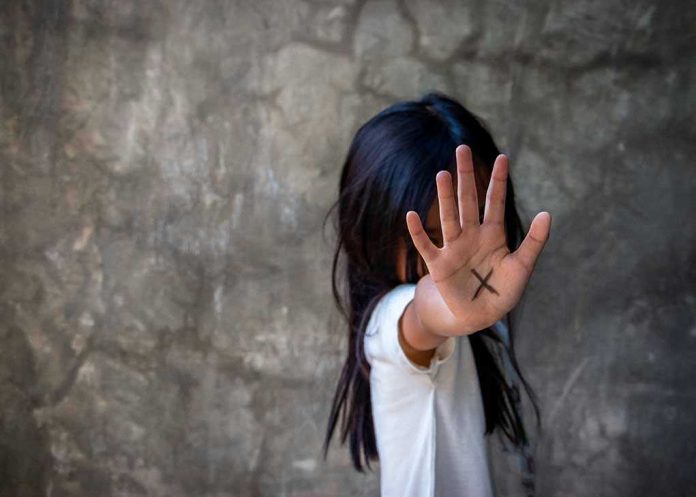
Systemic failures in the U.S. sponsor vetting process have once again left a vulnerable child at the mercy of abusers—casting new scrutiny on the consequences of past open-border policies and sparking demands for real reform under President Trump.
Story Snapshot
- A 12-year-old Honduran girl suffered horrific abuse after being released to sponsors in Texas, exposing dangerous gaps in the U.S. sponsor vetting system.
- The case reignites debate over the risks unaccompanied minors face in America’s immigration system, which critics say was weakened by prior administrations’ lax enforcement.
- Multiple felony charges have been brought against the alleged abusers, but the incident prompts urgent calls for systemic reform and accountability.
- Advocates and policymakers clash over child protection, border security, and the future of sponsor oversight as the immigration debate intensifies.
Extreme Abuse Case Exposes Sponsor Vetting Failures
In a harrowing case that has gripped the nation, a 12-year-old girl from Honduras was subjected to months of torture and abuse after entering the United States as an unaccompanied minor. Originally fleeing one of the most dangerous regions in the world, she was released by U.S. officials to a distant uncle, who allegedly sexually abused her. Later placed with two sisters in Montgomery County, Texas, the girl endured beatings, starvation, and physical restraint until her escape in September 2014. The Garcia sisters now face multiple felony charges, including injury to a child and unlawful restraint. This case exposes how sponsor vetting and oversight have failed to protect the most vulnerable, raising major questions about the government’s ability to safeguard children entrusted to its care.
The timeline of abuse coincided with a dramatic surge in unaccompanied minors crossing the southern border, a crisis exacerbated by years of open-door policies and inadequate enforcement. In 2014 alone, apprehensions of minors from Central America soared by nearly 80% over the previous year. The U.S. Office of Refugee Resettlement, tasked with placing these children, relied on a sponsor system that often meant releasing minors to distant relatives or acquaintances—sometimes with little more than a background check. Reports of abuse and neglect have grown, but this case stands out for its brutality and the glaring institutional lapses that allowed it to happen. Advocates argue that weak vetting and monitoring have turned a humanitarian program into a pipeline of vulnerability, while left-leaning critics resist needed reforms that would strengthen enforcement and accountability.
Policy Debate: Security, Accountability, and Child Welfare
This incident has reignited fierce debate in Washington and across the country. President Trump and his allies point to the case as evidence that the U.S. must put the safety of children and citizens first by tightening border controls and overhauling the sponsor vetting process. Critics of the prior administration’s policies argue that lax enforcement, globalist humanitarian rhetoric, and a refusal to confront the realities of child trafficking have created an environment ripe for abuse. Multiple reports confirm that other unaccompanied minors have faced similar dangers after being released to sponsors, prompting calls for comprehensive reform—including more rigorous screening, real-time monitoring, and strict consequences for failures in oversight. Lawmakers and officials are now under pressure to ensure that tragedies like this are never repeated, and to restore faith in a system that has too often put ideology ahead of common sense protection.
Despite ongoing litigation, the Trump administration has already moved aggressively to close loopholes, increase enforcement, and demand cooperation from state and local authorities. Policy shifts include expanded use of expedited removal, mandatory registration for undocumented immigrants, and threats to sanctuary jurisdictions that refuse to enforce federal law. These measures, while controversial among the left, aim to prevent future failures and send a clear message: the safety of children and the rule of law are not negotiable. As the legal process against the Garcia sisters unfolds, the public outcry continues to drive home the urgent need for action—and for an immigration system that puts Americans and vulnerable children ahead of politics.
Broader Implications and the Path Forward
The impact of this case extends far beyond one family or one community. For many conservatives, it is emblematic of the dangers created by years of failed policies that prioritized optics over outcomes. The economic costs—ranging from child welfare services to legal proceedings—are compounded by the social toll of eroded trust in the sponsor system. On the political front, the case has become a rallying cry for those demanding secure borders, responsible governance, and the restoration of American values. Experts agree that only robust vetting, vigilant oversight, and a willingness to confront the hard truths about illegal immigration will prevent these tragedies in the future. As Congress debates new measures and President Trump’s administration continues to pursue tough reforms, the hope is that America will once again become a place where no child is left unprotected by the very system meant to shield them.
Sources:
HHS Sponsor Vetting Under Fire After 12-Year-Old Unaccompanied Minor Case – The Deport Report















